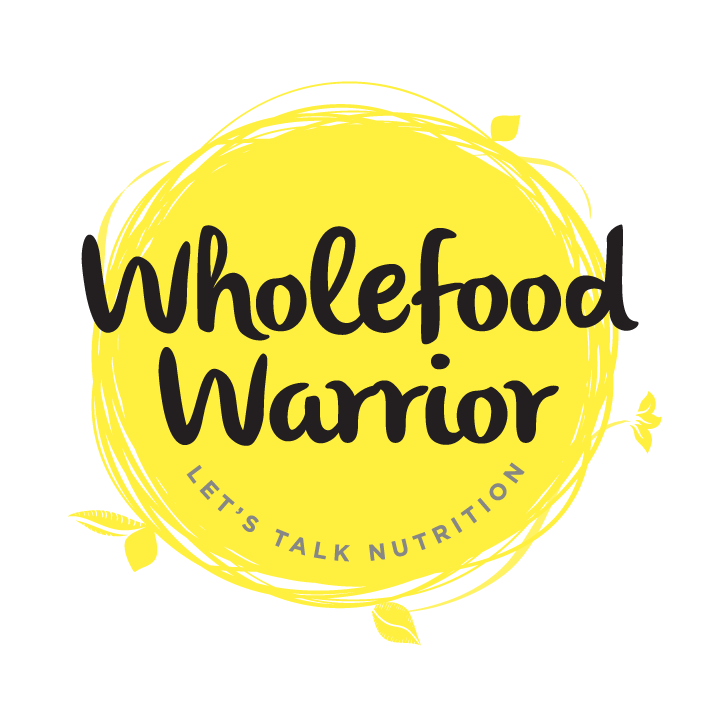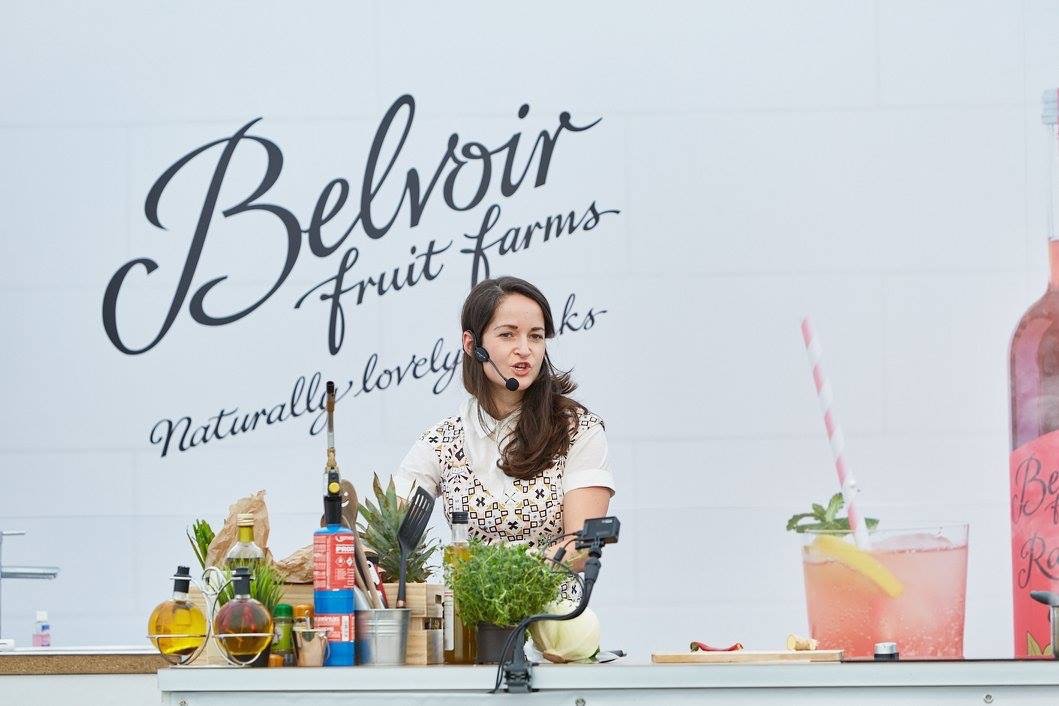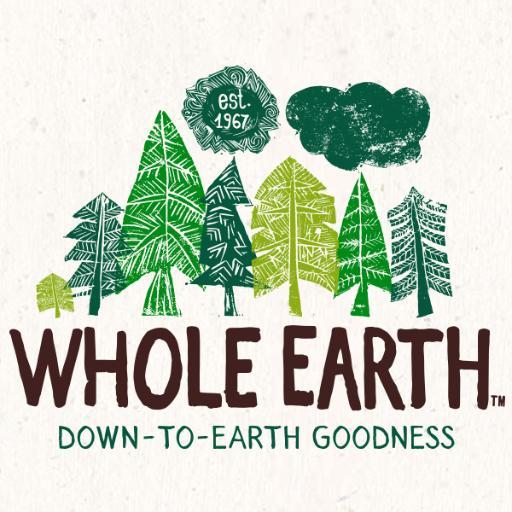I'm super excited to be able to share the article I wrote for Exclusive Magazine, a lifestyle magazine for Nottinghamshire and Leicestershire.
Copies of the magazine are displayed at all good restaurants, delis and coffee shops and are availble for sale in most newsagents in the area. I will be writing for them for the forseeable future, on all things health and nutrition, so make sure you pick up a copy.
Here is the latest article:
Give us this day our daily bread.. but wait, is it gluten free?
Do you think gluten is bad?
If you have just answered "no" to this question then you may well be in the minority.
You see, gluten-free is really trendy right now. In fact, it is so popular, that the gluten-free food market has seen a 63% growth in the past two years.
What is behind this hype? Should you be avoiding that daily bread?
What is gluten?
Gluten is a protein found in some grains, including wheat, barley, rye and spelt.
What is the problem with gluten?
Gluten is difficult to break down.
Undigested gluten may cause irritable bowel (IBS) like symptoms, including bloating, gas, stomach cramps and constipation/or diarrhoea.
In coeliac disease, the body recognises gluten as a threat and mounts an attack against it via the immune system, in turn causing inflammation and damage to the gut lining. Coeliac disease is true gluten intolerance with the only treatment being a life-long gluten-free diet.
Gluten is also implicated in non-coeliac gluten sensitivity, dermatitis-herpetiformis, gluten ataxia, Chron's disease, wheat allergy & IBS (1).
Should I be avoiding gluten?
If you have coeliac disease, wheat allergy, gluten ataxia, Chron's disease or dermatitis-herpetiformis, the simple answer is YES. All of these diseases are related to gluten intolerance so this very stuff is best avoided.
Non-coeliac gluten sensitivity and IBS are both a dark area and rife for self-diagnosis and misinterpretation. IBS is an umbrella term relating to conditions where the bowel is inflamed. The cause of the inflammation may or may not be linked to gluten.
Since gluten is hard to digest, IBS improves on a gluten-free diet (2). In addition, poor digestive function is linked with other diseases, including fibromyalgia, mood disorders, rheumatoid arthritis and other autoimmune conditions, all of which show an improvement once dietary gluten is removed (2).
Should I avoid gluten if I'm not ill?
If your daily intake of food is predominantly based on gluten-containing foods, you should probably work on addressing the balance. For example, cereal or porridge for breakfast, a sandwich for lunch and pasta for dinner would expose you to gluten 3x that day. If you have no issue with gluten then this combination is theoretically no problem, however, your diet would be devoid of many nutrients needed for optimum health.
Our bodies thrive on variety with the majority of vitamins and minerals coming from vegetables. That sad piece of lettuce in your midday sandwich is nowhere near enough so it makes sense to switch to a salad or soup in order to obtain a wider range of nutrients.
Overdoing any food is likely to cause issues, so the best policy is always to address the balance and not have it every day.
The sliced loaf
Whilst gluten may not be your main concern, the remaining ingredients in everyday sliced bread should be. From hydrogenated vegetable fats to emulsifiers and various flour treatment agents, the average supermarket loaf is brimming with the kind of chemicals that do not promote health.
Cereal products are prone to toxic mould so antifungal agents are used to reduce it.
According to research, these treatment agents aren't just putting extra chemicals into our bodies but they are barely bringing mould toxins down to a safe level (3).
Overexposure to toxic mould has been linked to liver disease, cancer, low immunity and neurological problems (3).
Gluten-free breads also contain many additives, therefore consuming these is not necessarily a better option.
A case for sourdough
For bread to rise, it either needs to be pumped full of chemicals (not ideal) or ferment a little.
In sourdough bread, a starter culture is used and the bread fermented slowly (typically overnight). Thanks to this slower fermentation process, the bread rises but more importantly lactic acid is formed.
Aside from giving sourdough its characteristic sour taste, lactic acid forming bacteria help to break down both toxic moulds (3) and gluten (4).
Gluten is present in sourdough but in lower quantities than in the unfermented sliced loaf.
In addition, good sourdough only has 3 ingredients: flour, water and sourdough starter (typically a mix of flour, yeast and lactic acid bacteria), therefore added chemicals are not an issue.
The takeaway
Unless medically necessary, focus your efforts on increasing nutrient intake instead of avoiding gluten. Switching your usual lunchtime sandwich to a salad or soup, having a smoothie a couple of times a week for breakfast and bulking out your dinner with veggies are all great ways to add nutrients.
If you have to eat bread, sourdough is a far better option than those chemically confused sliced loaves.
References:
1. Foschia M, Horstmann S, Arendt EK, Zannini E (2016) Nutritional therapy – Facing the gap between coeliac disease and gluten-free food. International Journal of Food Microbiology, doi:10.1016/j.ijfoodmicro.2016.06.014.
2. Aziz I, Dwivedi K, Sanders DS (2016) From coeliac disease to noncoeliac gluten sensitivity; should everyone be gluten free? Current Opinion in Gastroenterology, 32: 120-127.
3. Oliveria PM, Zannini E, Arendt EK (2014) Cereal fungal infection, mycotoxins, and lactic acid bacteria mediated bioprotection: From crop farming to cereal products. Food Microbiology, 37: 78-95.
4. Gerez CL, Rollan GC ,de Valdez GF (2006) Gluten breakdown by lactobacilli and pediococci strains isolated from sourdough. Letters in Applied Microbiology, 42: 459-464.
Detox smoothie
Here is a helping hand for those sluggish or fatigued days: a detox smoothie.
Read moreEggs for breakfast: are they good or bad for you?
Eggs have been the source of significant confusion thanks to their cholesterol content. On the contrary, they are concentrated sources of vital nutrients. So are eggs good or bad for you?
Let's take a look at the science of the golden yolk:
Nutrition:
Eggs are good sources of Vitamin D, choline and riboflavin. Zinc, Vitamin B12, iron and folate are also present in smaller amounts.
A couple of medium eggs, deliver 12g of protein. A recent study found that eating protein at breakfast reduces weight gain, thanks to its regulatory effect on appetite (1).
If you are watching your weight or just want to be a bit healthier, eggs make a smart breakfast choice from a nutritional perspective.
Cholesterol:
Far from being a bad thing, cholesterol is essential for many bodily processes.
Yes, cholesterol is present in the yolk of eggs, but the link between dietary cholesterol and blood levels of cholesterol is very weak. In fact, 75% of the cholesterol we have in our body is made by the liver, not ingested.
Research studies show that the consumption of 2-4 eggs per day does not raise blood cholesterol levels in the majority of people (2) but if you have cardiovascular disease it may do (2).
Diabetes
This is where the science gets a little bit confusing.
Studies indicate that high egg consumption increases the risk of developing type two diabetes (3). Sadly, science is never clear cut so this is at best an association, not a direct cause.
In addition, if you already have type 2 diabetes, eating eggs may increase your risk of developing cardiovascular disease (4) but then again, type 2 diabetes alone increases your risk of developing cardiovascular disease.
Should you eat eggs?
If you don't suffer from cardiovascular disease or diabetes then eating eggs is a good move. They contain some vital nutrients, including Vitamin D, a vitamin that we are particularly low on in the UK.
Eggs are quick to prepare and contain protein, which when eaten at breakfast has been shown to reduce weight gain. If you are used to eating cereal for breakfast, eating eggs a few times a week may benefit your health and waistline.
As with any food, it is important not to overdo it. A couple of eggs three times a week is ideal.
Organic is best. Luckily, in comparison to other organic animal sources of protein, eggs are the cheapest.
In a nutshell: eat organic eggs for breakfast 2-3 times a week. It'll do you some good.
References:
1. Liedy HJ, Hertel HA, Douglas SM, Higgins KA, Shafer RS (2015) A high-protein breakfast prevents body fat gain, through reductions in daily intake and hunger, in "Breakfast skipping" adolescents. Obesity, 23: 1761-1764.
2. Djoussé L, Gaziano JM (2009) Dietary cholesterol and coronary artery disease: a systematic review. Current Atherosclerosis Reports, 11: 418-422.
3. Djousse L, Gaziano JM, Buring JE, Lee IM (2009) Egg Consumption and Risk of Type 2 Diabetes in Men and Women. Diabetes Care, 32: 295-300.
4. Shin JY, Xun P, Nakamura Y, He K (2013) Egg consumption in relation to risk of cardiovascular disease and diabetes: a systematic review and meta-analysis. The American Journal of Clinical Nutrition, 98: 146-159.
Nottingham Castle Great Food & Drink Festival
On the 28th of May, I had the pleasure of carrying out a nutritionist-led food demo at the Nottingham Castle Great Food & Drink Festival.
The Nottingham Castle Great Food & Drink Festival is a hugely popular event with many artisan stalls and a generally amazing vibe. Luckily, the Great British weather was also on our side, blessing us with plenty of sunshine during the weekend.
My demo, titled "Healthy Fast Food", saw the creation of two 15 minute recipes, both of which make the ideal dinner.
Here is what was on the menu:
Prawns, stir fried with a coconut, ginger & turmeric sauce, rice noodles and plenty of veggies
Flattened chicken, satay slaw & squashed new potatoes
Both options were balanced meals, meaning they contained the ideal proportion of protein, fats, carbohydrates and vegetables. If "balance" doesn't sell it for you, then the fact that these dishes were delicious and quick to prepare should.
I'll be popping up at various food festivals in the upcoming months so keep your eye on my Facebook page for announcements.
Special thanks for Whole Earth and Froothie UK for the products and support that they provided.








